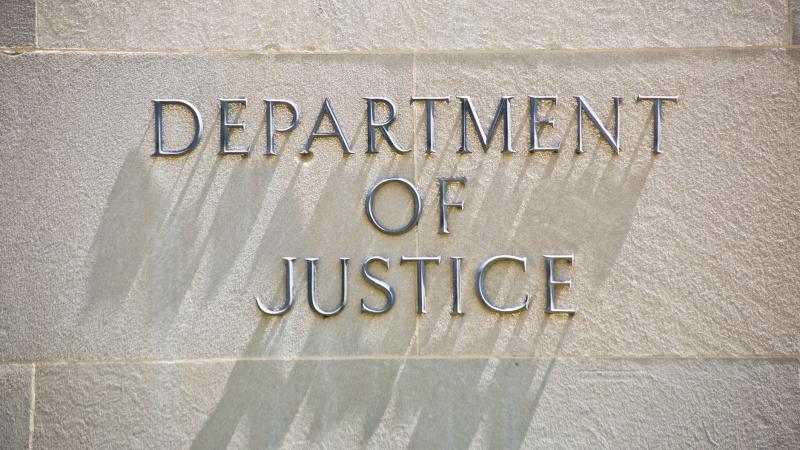Historic peace deal: What it means if Hamas and Israel agree
"It must be done," said Israeli PM Netanyahu. The ball is now in Hamas' court, but there's a plan to move forward even if Hamas does not agree.
On Monday, President Donald Trump and Israeli Prime Minister Benjamin Netanyahu announced a peace plan to end their conflict with Gaza. Hamas must now agree to the terms.
"This can be done the easy way or the hard way, but it must be done," Netanyahu said in a statement to the press at the White House.
The plan received praise from Republican members of Congress, but also from unexpected sources like the Palestinian government, which serves as the bureaucratic arm of Gaza governance. Rep. Tom Tiffany, R-Wisc., told Just The News, "Think about when President Trump went to the Arabic countries very early on in his second term. He was treated with great respect, and he treated them with great respect. It's the same with Israel and the Jewish people."
Emphasizing why this is happening under this administration, Tiffany concluded, "It is just amazing that this man, President Trump has the respect of both parties, but that's why it's getting done."
Importantly, the Palestinian Authority committed to implementing the reforms, including holding new elections and ending its system that pays the families of Palestinians involved in attacks on Israel, per the Associated Press.
“The State of Palestine welcomes the sincere and determined efforts of President Donald J. Trump to end the war on Gaza and affirms its confidence in his ability to find a path toward peace,” the statement said. “We have affirmed our desire for a modern, democratic, and non-militarized Palestinian state, committed to pluralism and the peaceful transfer of power."
The proposed 20-point peace agreement aims to transform Gaza into a "deradicalized," terror-free zone that would, in theory, no longer pose a threat to its neighbors, with the immediate ending of hostilities upon acceptance by both Israel and Hamas. Israeli forces would withdraw to a designated line, suspending all military operations, while Hamas would return all hostages within 72 hours of Israel's public agreement. In return, Israel would release 250 life-sentence prisoners, 1,700 Gazans detained after October 7, 2023, and the remains of deceased Gazans proportional to Israeli hostage remains.
Hamas members committing to peace and disarmament would receive amnesty or safe passage to leave Gaza, ensuring no further role in its governance. Additionally, full humanitarian aid, consistent with the January 19, 2025, agreement, would flow into Gaza without interference, managed by neutral international organizations, with the Rafah crossing operating under the same mechanism.
"Board of Peace" proposed
Gaza’s governance would transition to a technocratic, apolitical Palestinian committee, supported by international experts and overseen by a new “Board of Peace” chaired by President Donald J. Trump, alongside other global leaders like Former Prime Minister Tony Blair. This body would manage Gaza’s redevelopment, drawing on international standards and Trump’s 2020 peace plan, until a reformed Palestinian Authority can assume control.
A Trump-led economic development plan would create a special economic zone with favorable trade terms, encouraging investment and job creation. Residents would be free to stay or leave, with incentives to rebuild Gaza, while all military infrastructure, including tunnels and weapons, would be dismantled under independent monitoring, supported by a buyback and reintegration program to ensure demilitarization.
Pathway to Palestinian self-determination and statehood
An International Stabilization Force (ISF), developed with Arab and international partners, would deploy to Gaza to train Palestinian police and secure borders alongside neighboring Israel and Egypt, preventing munitions inflow while facilitating trade. Israel would not occupy or annex Gaza, with the IDF withdrawing progressively as the ISF establishes stability, based on agreed demilitarization milestones. If Hamas delays or rejects the proposal, aid and redevelopment would proceed in terror-free zones under ISF control. An interfaith dialogue would promote tolerance, aiming to shift mindsets toward peaceful coexistence. As Gaza rebuilds and the Palestinian Authority reforms, a pathway to Palestinian self-determination and statehood could emerge, supported by U.S.-led dialogues for a lasting political solution.
The announcement follows optimistic messaging from the president expressed in a Sunday Truth Social post: “We have a real chance for GREATNESS IN THE MIDDLE EAST. ALL ARE ON BOARD FOR SOMETHING SPECIAL, FIRST TIME EVER. WE WILL GET IT DONE."
Israel expresses regret over collateral damage in Qatar
Prior to the Trump-Netanyahu press conference, Trump held a phone call with Netanyahu and Qatari Prime Minister Mohammed bin Abdulrahman bin Jassim Al Thani to foster closer diplomatic coordination between both nations.
During the call, Netanyahu "expressed his deep regret that Israel’s missile strike against Hamas targets in Qatar unintentionally killed a Qatari serviceman." This sentiment is in relation to Israel attacking Hamas leadership in Qatar in early September, outraging Doha and drawing international criticism for violating Qatari sovereignty. The country also came under Iranian bombardment in the wake of American strikes on that country's nuclear program.
He further expressed regret that, in targeting Hamas leadership during hostage negotiations, Israel violated Qatari sovereignty and affirmed that Israel will not conduct such an attack again in the future.
Ben Whedon contributed to this content.














